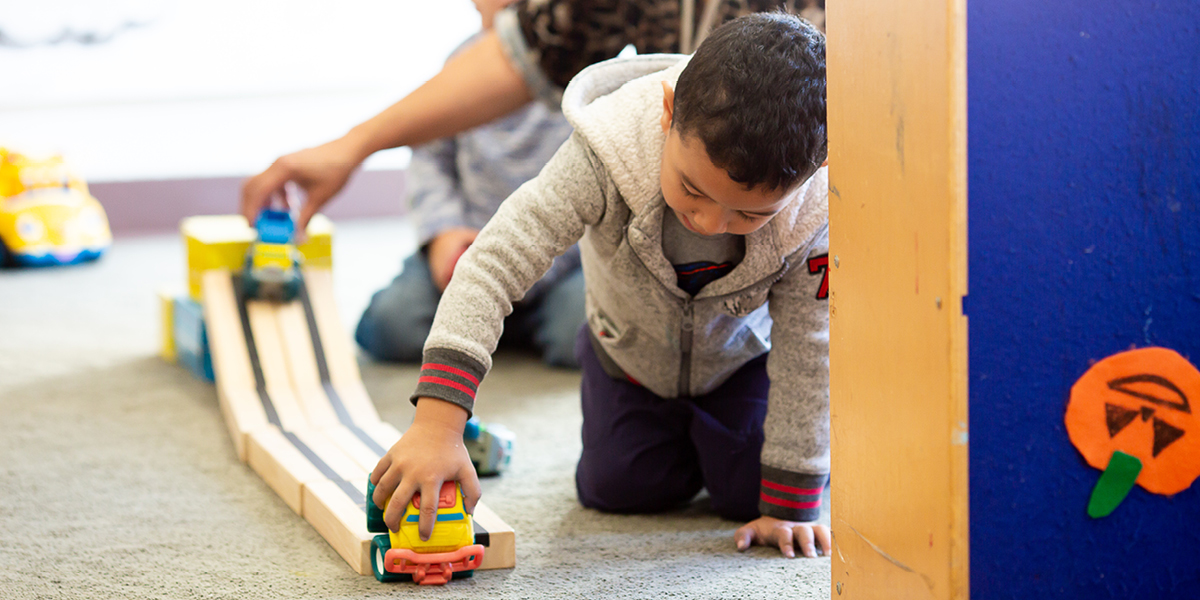Child abuse and neglect contribute to a real health crisis in the United States and around the world. According to the Centers for Diseases Control and Prevention (CDC), “at least 1 in 7 children have experienced child abuse and/or neglect in the past year, and this is likely an underestimate.”
Adverse childhood experiences (ACEs) have a long-term impact on the health, opportunity and well-being of children and can continue into adulthood if not properly addressed. To better understand this public health problem and what is being done to help children who experience abuse, it’s important to define the different types of abuse.
Common Types of Child Abuse and Neglect
These are the four most common types of child abuse and neglect as defined by the CDC:
- Physical abuse – The intentional use of physical force that can result in physical injury.
- Sexual abuse – Pressuring or forcing a child to engage in sexual acts.
- Emotional abuse – Behaviors that harm a child’s self-worth or emotional well-being.
- Neglect – Failing to meet a child’s basic physical and emotional needs.
With definitions for the different types of child abuse and neglect, an understanding of the factors and consequences of abuse is important to determine appropriate ways to address future health needs of children.
Factors that Contribute to Child Abuse
Not having the means to pay for basic food, shelter, utilities and housing needs is stressful for parents, guardians and caregivers. This can lead to child abuse and neglect. In fact, the CDC states that rates of child abuse and neglect are “five times higher for children in families with low socio-economic status compared to children in families with higher socio-economic status.”
The U.S. Department of Health and Human Services lists several other factors that contribute to parents, guardians and caregivers perpetrating child abuse and neglect. These include:
- A history of being abused – A person who was abused as a child is more likely to commit abuse themselves, continuing a long cycle of abuse that may go back generations.
- Substance use – Drug and alcohol use and dependency impairs cognitive decision-making and can lead to child abuse and neglect.
- Mental health issues – Mental health issues, including depression, can contribute to poor emotional control resulting in abuse or neglect.
The Consequences of Abuse
The physical injuries of cuts and bruises and broken bones are only one consequence of abuse. The emotional trauma can create severe barriers to appropriate social-emotional development and contribute to increased anxiety in children.
Untreated, the residual after-effects of abuse can manifest as lifelong health issues. Substance abuse, vulnerability to further abuse and victimization, difficulty learning, delayed brain development, and the inability to gain and maintain employment can all result from childhood abuse.
Local Support
San Diego Foundation (SDF) supports programs in our region that help children who have experienced abuse or neglect. Here are ways we’re making a difference in the San Diego region:
- Expanding Access to Care: SDF awarded $252,000 in grants to support 11 nonprofit programs in San Diego County that help prevent abuse, provide mental and behavioral health services, support early interventions, address trauma and increase health equity for young children, ages 0 – 5, and their families. ACEs are recognized as a challenge impacting many children, families and service providers that deliver care in San Diego County. Ensuring young children have opportunities to thrive and families have access to supportive services is crucial to nurturing early childhood development and care.
- ACE Screenings and Referrals: By helping to fund the Early Childhood Initiative Resilience Grant, SDF supports the Family Health Centers and other local nonprofits to institutionalize screenings for ACEs as part of the services they provide to the community.
- Supporting Trauma-Informed Care: In alignment with Live Well San Diego, SDF has adopted a Trauma-Informed Code of Conduct. It is a statement of San Diego youth expectations about how children and families should be treated by government agencies and communities of support who interact with them. Organizations must commit to apply trauma-informed care practices to ensure that their interactions, behaviors, services and communities of support are accountable to avoid worsening the effects of trauma. This commitment supports youth in building resilience, and being balanced, healthy and empowered.
Supported by the Guy C. Clum Fund at SDF since 2018, the Early Childhood Initiative has awarded more than $9 million to uplift children, families and childcare providers, impacted over 28,000 young children (ages 0-5) and supported more than 1,500 childcare providers and parents.




